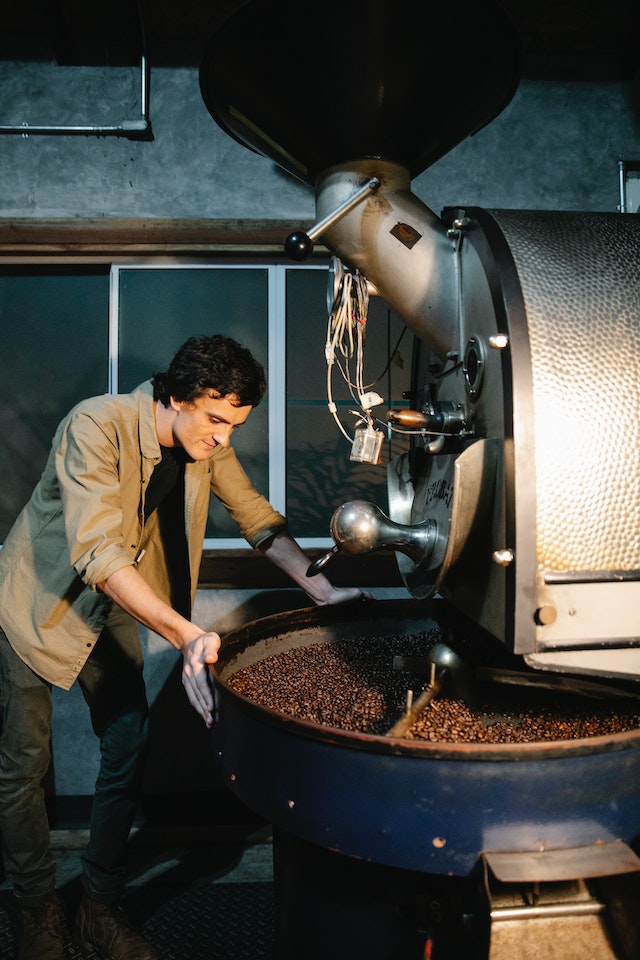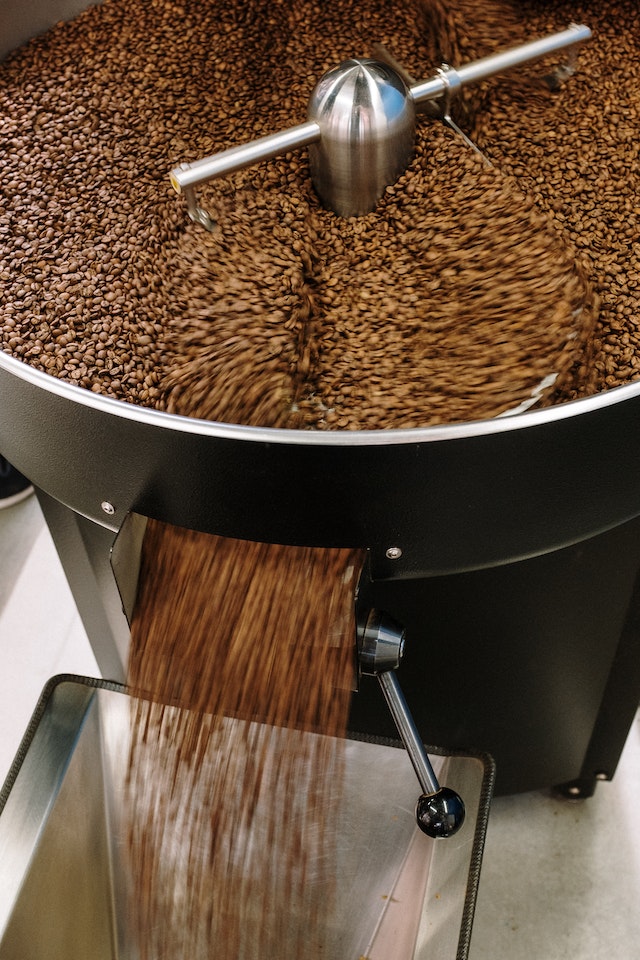Coffee is a global passion. From homemade coffee in the morning to professionally brewed coffee in a commercial coffee machine.
However, like all industries, the coffee market is dealing with the challenge of turning its production and distribution greener while maintaining efficiency and taste.
In this article, we’ll explore how coffee businesses are going green, focusing on sustainable bean sourcing, waste reduction, and energy-efficient roasting methods to reduce the environmental changes we’ve been seeing globally.
1. Sourcing Sustainable Beans

Sustainable coffee sourcing is at the heart of the green coffee movement.
The first step to sustainable sips is to ensure that coffee beans are grown and harvested with minimal impact on the environment and that the farmers receive fair compensation for their labour.
Shade-Grown Coffee
One eco-friendly practice is shade-grown coffee, which involves planting coffee shrubs beneath the canopy of trees. This not only provides a natural habitat for wildlife but also protects against soil erosion and reduces the need for chemical pesticides.
Organic Coffee
Organic coffee is grown without the use of synthetic fertilizers and pesticides. It not only reduces harm to the environment but also produces beans with a unique, pesticide-free flavour.
Bird-Friendly Coffee
Bird-friendly coffee, certified by the Smithsonian Migratory Bird Centre, is grown in a manner that supports bird habitats and biodiversity. The cultivation methods mimic natural forest ecosystems, which benefits both birds and the environment.
2. Reducing Waste in the Coffee Industry

The coffee industry can generate a significant amount of waste, from disposable cups to the tons of coffee grounds produced each year.
Sustainable coffee businesses are taking measures to reduce this waste and limit their environmental footprint.
Reusable Cups and Eco-Friendly Packaging
Many coffee shops now encourage the use of reusable cups and offer discounts to customers who bring their own. Furthermore, eco-friendly packaging materials, such as compostable cups and biodegradable lids, are becoming more prevalent.
Recycling Coffee Grounds
Some coffee businesses have found innovative ways to repurpose coffee grounds, including using them as compost, fuel, or even as a base material for sustainable building blocks.
Zero-Waste Initiatives
A few coffee shops are committed to zero-waste practices, meaning they aim to send no waste to landfills. They recycle, compost, and minimize waste through carefully planning and sourcing sustainable materials.
3. Energy-Efficient Roasting Methods

Coffee roasting, a crucial step in the coffee production process, typically requires high energy consumption.
Sustainable coffee businesses are exploring innovative roasting methods to minimize their carbon footprint.
Clean Energy Sources
Some coffee roasters are shifting towards clean and renewable energy sources, such as solar and wind power, to roast their beans. This significantly reduces their reliance on fossil fuels and cuts down on greenhouse gas emissions.
Energy-Efficient Roasting Machines
Energy-efficient roasting machines are designed to reduce energy consumption while maintaining the quality of roasted beans. These machines use advanced technologies like heat recovery systems and precise temperature control.
Carbon Offset Programs
Several coffee businesses are investing in carbon offset programs to balance out the emissions produced during roasting. These programs can include reforestation initiatives, renewable energy projects, and more.
The Consumer’s Role in Sustainability

While coffee businesses are making strides in going green, consumers also play a vital role in promoting sustainability in the coffee industry.
Here are a few ways coffee lovers can contribute to the cause:
Support Sustainable Brands
Choose to buy coffee from brands that prioritize sustainable sourcing and eco-friendly practices. Look for certifications such as Fair Trade, Rainforest Alliance, and USDA Organic.
Use Reusable Cups
Whenever possible, use your own reusable cup when getting your coffee to-go. This simple act can reduce the demand for disposable cups and lids.
Compost Coffee Grounds
If you brew coffee at home, consider composting your coffee grounds rather than throwing them in the trash. Coffee grounds are rich in nutrients and make excellent compost.
Advocate for Sustainability
Spread the word about the importance of sustainability in the coffee industry. Encourage your favourite coffee shops and brands to adopt more environmentally friendly practices.
Closing Thoughts
In conclusion, coffee businesses are increasingly embracing sustainable practices in their quest to reduce their environmental impact. By sourcing sustainable beans, reducing waste, and employing energy-efficient roasting methods, these businesses are making a significant difference in the global effort to protect our planet. As a coffee lover, you can contribute to this movement by choosing to support sustainable coffee brands and adopting eco-friendly practices in your coffee routine. Together, we can enjoy our favourite brew while taking steps to ensure a greener, more sustainable future.
Author Profile

- Online Media & PR Strategist
- As the Chief of Marketing at the digital marketing agency ClickDo Ltd I blog regularly about technology, education, lifestyle, business and many more topics.
Latest entries
 LifestyleApril 9, 2025Top 28 Hatton Garden Jewellers to Shop for the Best Jewellery
LifestyleApril 9, 2025Top 28 Hatton Garden Jewellers to Shop for the Best Jewellery Companies In LondonApril 9, 202510 Best Accounting Firms for Small Businesses in London
Companies In LondonApril 9, 202510 Best Accounting Firms for Small Businesses in London Business AdviceMarch 27, 20259 Ways Technology Helps Businesses Offer Better Promotions
Business AdviceMarch 27, 20259 Ways Technology Helps Businesses Offer Better Promotions Health & BeautyMarch 16, 2025Top 15 Dentists in London – Private Emergency Dentist
Health & BeautyMarch 16, 2025Top 15 Dentists in London – Private Emergency Dentist




